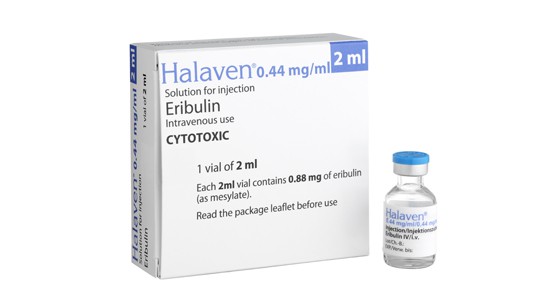
Eisai’s Halaven (eribulin) should not be funded by the NHS for earlier use in breast cancer patients, according to draft guidance from NICE.
The UK health technology assessment agency says there is a lack of evidence that Halaven offers value for money in locally-advanced or secondary breast cancer in patients who have previously undergone only one chemotherapy regimen.
NICE agreed last year that Halaven should be made available on the NHS as a third-line option after two prior rounds of chemotherapy.
The draft guidance – which is open for comments until 18 December – refers to issues with the clinical trial supporting the earlier use of the drug, which showed an increase in overall survival of 4.6 months with the drug but no impact on progression-free survival (PFS).
According to the appraisal committee “it’s not clear whether the increase in overall survival is because of eribulin alone or because of effective treatments given after eribulin”.
Advanced breast cancer patients are generally offered an anthracycline, taxane or capecitabine as a second-line treatment option, which are generic and fairly cheap. Halaven costs £361 or £541.50 per vial – depending on dose – and NICE estimates that its cost-effectiveness range from £36,244 to £82,743 per quality-adjusted life year (QALY).
“Because of the uncertainty in the clinical evidence, the most plausible cost-effectiveness estimates are likely to be at the top of this range, which is above what NICE normally considers to be acceptable for end-of-life treatments,” it said. A second appraisal committee meeting on the drug is scheduled for 16 January.
Halaven has been one of Eisai’s key growth products for some years, but saw sales in fiscal 2016 dip to 37.3bn yen from 40.2bn yen in the previous year, a decline of around 7%, despite approvals in new indications such as liposarcoma.
Eisai is testing the drug in other cancers, including bladder cancer, as well as in combination with Merck & Co’s fast-growing checkpoint inhibitor Keytruda (pembrolizumab) in the hope of unlocking additional growth. It recently decided to drop development in non-small cell lung cancer (NSCLC) after disappointing phase III clinical results.




